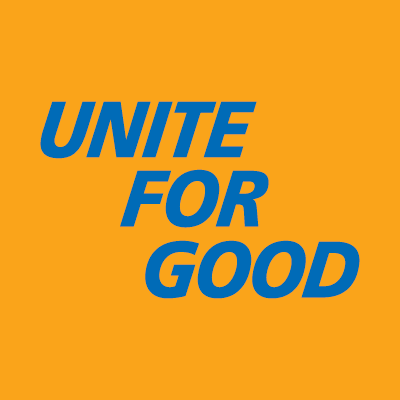Rotary’s work with the United Nations and the RI Representative Network
Rotary and the United Nations share a history of working together toward world understanding and peace. In 1942, Rotary clubs from 21 nations organized a conference in London attended by ministers of education and observers to develop ideas for advancing education, science and culture across nations. That event planted the seed for the organization now known as UN Educational, Scientific, and Cultural Organization (UNESCO.) In 1945, 49 Rotarians in 29 delegations helped to draft the UN Charter in San Francisco. Rotary became heavily engaged in supporting the United Nations during its initial years by routinely sending observers to major meetings and actively promoting the organization in specialized Rotary publications such as Report on the U.N. by Rotary International, From Here On!
and The World at Work. Five Rotarians served as presidents of the UN General Assembly.
As the cold war evolved in the 1950’s and the UN became a battleground for opposing political ideologies, the RI Board moved to maintain Rotary’s long-standing policy against involvement in political matters and decreased its participation. However, during that time and throughout the next two decades, the RI Board would, on occasion, reiterate the importance of keeping abreast of UN activities to enhance Rotarians’ knowledge of world affairs and encouraged presidential-appointed observers to major UN meetings and articles in Rotary publications.
It was not until the development of the PolioPlus program in the mid-1980’s that Rotary reestablished its liaison with the UN system. Initially Rotary reconsidered its involvement with UNICEF, the World Health Organization (WHO), and the UN Economic and Social Council (ECOSOC). In a November 1991 RI Board item entitled “United Nations, its Agencies and Nongovernmental Organizations as a Target Audience for RI Public Relations,” the Public
Relations Committee stated:
After reviewing the history of RI’s relationship with the United Nations and its agencies, the committee agreed that increasing RI’s liaison with these organizations should be an important part of the implementation of the master public relations plan. The purpose of such action would be increased recognition of RI as a distinguished, effective organization working toward common goals.
The RI Board then approved a 10-point plan which included obtaining the highest possible consultative status in the UN system, increasing support for RI Representatives to the United Nations, and directing the General Secretary to promote broader awareness of the humanitarian goals shared by the two organizations among Rotarians and the general public. Subsequent RI Board decisions encouraged additional volunteer RI Representatives to the United Nations in New York, and representatives to UN offices in Geneva, Vienna and at UNESCO in Paris.
In March 1994, the RI Board identified the “Terms of Reference for RI Representatives to the UN and Other Agencies.” And, in March 1997, the RI Board expanded the RI Representative Network to include the:
- Food and Agricultural Organization, Rome, Italy
- World Food Program, Rome, ItalyOrganization of African Unity (African Union) Addis Ababa, Ethiopia
- UN Centre for Human Settlements (UN-HABITAT), Nairobi, Kenya
- UN Environmental Program (UNEP), Nairobi, Kenya
- World Bank, Washington D.C., USA
- Organization of American States, (OAS) Washington, D.C., USA
In the early and mid-2000’s, the RI President approved the addition of RI Representatives to include ECOSOC’s regional commissions and, in June 2005, the RI Board approved representation to the International Organization of the Francophonie (OIF). In November 2007, the RI Board added the UN’s International Fund for Agricultural Development (IFAD) to the responsibilities of RI Representatives in Rome and reviewed and confirmed the existing RI Representative Network (attached.) Today, with top consultative status and experienced volunteer RI Representatives at all major UN offices and agencies, Rotary remains one of the most respected non-governmental
organizations in the UN system.
RI Representatives make UN officials aware of Rotary programs and relay back information about the UN’s humanitarian and educational work. Through personal contacts developed over time, the RI Representatives assure that Rotary has access to the highest UN officials when needed by Rotary senior leaders. RI Representatives also perform a variety of other valuable services including arranging Rotary Days at the United Nations in New York, Paris and Rome, assisting district conferences to secure a UN speaker or prestigious meeting location, and educating Rotary members on the work of the United Nations and its parallel humanitarian goals to create a more healthful, better educated, and peaceful world.
Recent RI Representative activities include promoting the Gates Challenge Grant to UN audiences, helping connect key Rotary leaders and staff for PolioPlus events in New York and Geneva, and providing information and counsel on relevant UN projects such as maternal/child health initiatives and water/sanitation technologies to the Strategic Partnerships Department. RI Representatives have also helped facilitate high-level interviews for The Rotarian and Global Outlook, helped Rotary Peace Fellows to be introduced to UN internship and employment opportunities, and facilitated contacts for clubs and districts at local and regional UN offices worldwide. Presidential Review Each year the RI President-elect confirms or identifies new appointments for the RI Representatives. In accordance with the Terms of Reference, RI Representatives should:
- Be experienced Rotarians who have an interest and expertise in the organizations to which they are assigned.
- Serve for at least three years at the pleasure of the President.
- Live in proximity to the organizations’ offices.
- Receive initial and ongoing training in regard to their responsibilities and the policies, programs
and activities of RI and its Foundation. - Monitor their assigned organizations and provide regular reports to the General Secretary
regarding attendance at major meetings and the achievement of RI program and public relations
objectives. Representatives do not have the authority to make or change RI policy and programs
but, rather, communicate RI policy, programs and activities to their organizations.











